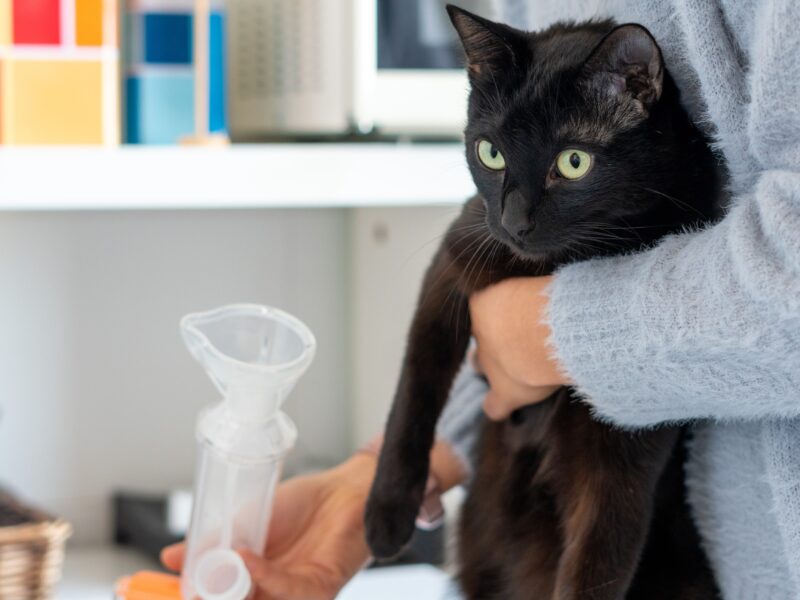The Best Time To Get Vaccinated? Right Now

Understanding which vaccines and boosters are necessary — and when to get them — may seem overwhelming. Dr. Robert O. Carpenter from the Texas A&M University School of Medicine, explains what to consider when making these decisions. Carpenter has been heavily involved with Texas A&M-led efforts to distribute vaccines and provide more equitable care to rural Texas populations.
The Centers for Disease Control and Prevention and the U.S. Food and Drug Administration have approved another round of COVID-19 boosters to protect against the most prevalent forms of the virus’ Omicron variant. But after these vaccines became available on Sept. 2, guidelines changed again just a few weeks later on Oct. 12. This is the most recent in a series of changes that complicate choices about vaccinations.
Beyond these COVID-19 guideline changes, there are other viruses to consider. The ongoing monkeypox emergency, the re-emergence of vaccine-derived polio in New York and the yearly surge of influenza mean there are several diseases circulating for which vaccines are available. Carpenter said while timing vaccinations might appear complicated, it’s simpler than it seems.
“People are trying to be ‘too smart’ about timing about the vaccines,” he said. “They think there’s got to be some secret to it. But there isn’t.”
Of course, there are complicated elements to getting the right vaccines. Whether one should get a COVID-19 booster depends on factors such as the time since last dose, age and vaccine formulation. Some people, such as those with a history of cancer or rheumatoid arthritis, are not considered “fully vaccinated” until they get three doses of the primary vaccine, whereas others are considered “fully vaccinated” and boosted after receiving three doses of the COVID-19 vaccine. Because of the evolving nature of COVID-19 variants and vaccine formulations, however, Carpenter adds that the term “fully vaccinated” has largely fallen out of use.
Although COVID-19 vaccines still receive much attention, it is important to consider getting the yearly flu shot as well, Carpenter said. He adds that those who are immunocompromised or over 65 years old should consider getting a high-dose influenza vaccine to stimulate the intended immune response.
Influenza cases begin to rise in the U.S. in October. Carpenter said this year, the flu struck early and is combining with other illnesses like Respiratory Syncytial Virus (RSV) to have a more significant impact on health systems than in recent years.
The flu tends to spread within the southern hemisphere before making its way north. Because it spreads most rapidly during their winter — which occurs in June, July and August below the equator — experts get a “preview” of how severe a flu season might be during winter in the northern hemisphere. This year, early predictions are indicating a more severe flu season than usual. That is in addition to the World Health Organization’s recent statement that COVID-19 remains a global health emergency.
Therefore, it’s important to get vaccinated as soon as possible, Carpenter said: “When’s the best time to get vaccinated? It’s right now.”
But it isn’t the flu alone that looms. Other respiratory illnesses, including COVID-19, begin to spread more quickly during fall before peaking in winter, between December and February. Although infection rates rise in the fall, it’s not too late to get vaccinated.
It’s also safe to get multiple vaccines on the same day, Carpenter said. It’s possible to develop both COVID-19 and influenza at the same time, resulting in a higher risk for severe illness, hospitalization and even death, which further incentivizes getting both vaccinations.
However, Carpenter also understands that messaging around vaccines can be confusing.
“People should consult health care professionals when they have questions about getting vaccinated,” he said. He suggests people talk to their primary care providers, pharmacists or nurses rather than getting information from unverified sources such as social media. A conversation with a health care professional will yield the best answers, Carpenter said.
If someone falls into an at-risk category, they should discuss the benefits of being vaccinated with their health care team — especially when there is a limited number of doses, like with the monkeypox vaccine, Carpenter said.
This article by Caleb Hess originally appeared on Vital Record.





